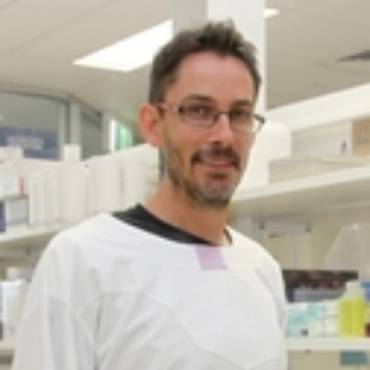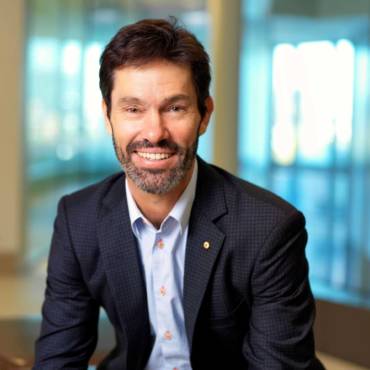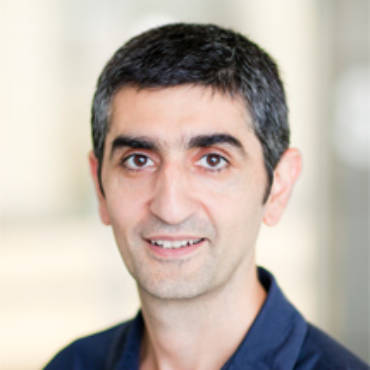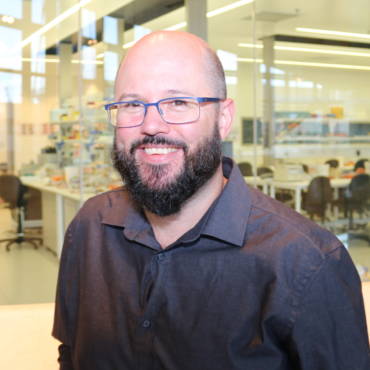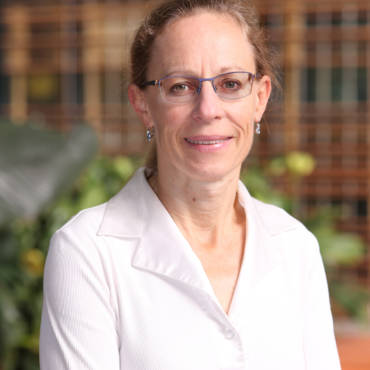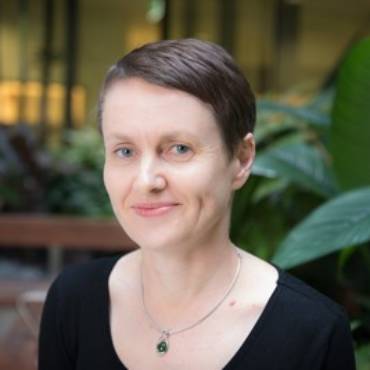Dr Mitchell Stark
BappSc (Hons), PhD
Group Leader/Senior Research Fellow
The University of Queensland Frazer Institute, Brisbane, Queensland, Australia
Dr Mitchell Stark is a molecular biologist and Group Leader/Senior Research Fellow from the Dermatology Research Centre (DRC) based at the Frazer Institute. His group has extensive experience in microRNA biology and biomarker discovery, next-generation sequencing, bioinformatics, and functional analysis for a variety of applications. The Stark Lab’s major research streams include: miRNA biomarkers for melanoma progression and the development a Genomics Atlas of pre-skin cancer lesions, which aim to provide insight into the early progression of melanoma and keratinocyte cancer, to aid in preventing invasive skin cancer formation and offer increased precision to the clinical management of patients.
Dr Stark completed his PhD (2015) in melanoma microRNA biomarkers at The Queensland University of Technology based at the QIMR Berghofer (QIMRB) Medical Research Institute. Prior to commencing his PhD, he worked as Senior Research Assistant (since 1999) and was trained and mentored in the Hayward lab (QIMRB) where he contributed to and led some seminal findings in the melanoma genetics/genomics field. Dr Stark joined the DRC in 2015 and in 2016 he was awarded a prestigious NHMRC Peter Doherty Early Career Fellowship to lead a pre-melanoma genomics program. Dr Stark has a career total of 80+ publications (h-index 35) including 1 patent and has published in respected journals such as Nature, Nature Genetics, Cancer Research, and Journal of Investigative Dermatology.
Professor David Whiteman
AM, FAFPHM, FAHMS, FSCCA (Hons)
B Med Sc, MBBS (Hons), PhD
Head, Cancer Control Laboratory
Coordinator, Melanoma and Skin Cancer Research Centre
QIMR Berghofer Medical Research Institute
Brisbane, Queensland, Australia
Professor David Whiteman is a medical epidemiologist with a special interest in the causes, control and prevention of melanoma and skin cancer. He received his medical degree from the University of Queensland in 1991, and his PhD in cancer epidemiology in 1997. He is Principal Investigator of QSKIN, a large prospective cohort study which has gathered clinical, phenotypic and genetic data on more than 43,000 people to unravel the causes of skin cancer. In addition to his research activities, he is a Fellow of the Australian Academy of Health and Medical Sciences, a Fellow of the Australasian Faculty of Public Health Medicine, and Honorary Fellow of the Skin Cancer College of Australasia. In 2019, he was made a Member of the Order of Australia for his services to cancer epidemiology.
Professor Kiarash Khosrotehrani
MD PHD FACD
Professor in Dermatology, NHMRC Career Development Fellow
The University of Queensland Diamantina Institute
Experimental Dermatology Group Leader
The University of Queensland Centre for Clinical Research
Affiliate Associate Professor
Faculty of Medicine and Biomedical Sciences
Director of Department of Dermatology, Princess Alexandra Hospital
Professor Khosrotehrani is a clinical scientist interested in skin biology, regenerative medicine and skin cancer.
He was recently appointed at the University of Queensland Centre for Clinical Research (UQCCR) and the newly established Translational Research Institute in Brisbane, Australia. Dr Khosrotehrani obtained his MD from the Cochin-Port Royal School of Medicine at René Descartes University, Paris, France, specialized in Dermatology and a fellow of the Australasian College of Dermatologists.
He is also a former graduate of the Ecole Normale Supérieure and the Institut Pasteur of Paris (Université Paris VI, Pierre et Marie Curie) where he obtained a PhD in Physiology and Physiopathology. During his post-doctoral training at Tufts-New England Medical Center, Boston, USA, Dr. Khosrotehrani helped establish the contribution of pregnancy-associated stem cells to tissue repair by demonstrating their multipotent capacity with a specific potency towards the endothelial lineage. The originality of this work was recently acknowledged by the NHMRC through an achievement award (2011) and he is currently an NHMRC Career Development Fellow.
The main focus of his laboratory, the Experimental Dermatology Group, is on mesenchymal-epidermal interactions in stem cell maintenance and cancer. His research has broad applications in skin wound healing, regenerative medicine and cancer initiation and progression.
Associate Professor Matthew H Law
QIMR Berghofer Senior Research Officer, Statistical Genetics
Adjunct Fellow, The University of Queensland Frazer Institute
Associate Professor Law completed his BSc (Hons) (1997-2000) at Adelaide University and PhD (2003-2007) through Melbourne University (Supervisor Professor Richard G.H. Cotton, Genomic Disorders Research Centre) in molecular genetics. Following a post-doctoral position at the UHI Millennium Institute, UK, (now the University of the Highlands and Islands) in 2007-2011, he returned to Australia, joining the QIMR Berghofer Medical Research Institute.
Associate Professor Law is a statistical geneticist and bioinformatician in the Statistical Genetics Laboratory, embedded in the wider Genetic Epidemiology department. He has expertise in large data analysis, and is at the forefront of using statistical techniques to identify the genetic underpinnings of skin cancer, particularly melanoma.
Professor Monika Janda
Professor in Behavioural Science
Director, Centre for Health Services Research
Faculty of Medicine
The University of Queensland
Professor Monika Janda is the Director, Centre for Health Services Research, and Professor in Behavioural Science, at the Faculty of Medicine, University of Queensland, and a recent NHMRC Translational Research Fellow (2018-20). Professor Janda leads the NHMRC Centre for Research Excellence in Skin Imaging and Precision Diagnosis (2021-2025) and a NHMRC funded Synergy Program of Research (2022-2026). She is a health psychologist with a research background in cancer prevention and quality of life research, with strong clinical collaborations, and a passion for consumer-centred digital interventions that make self-management of health-related issues easier and better for people. Her work focuses on applied health and clinical research problems, making a difference to cancer prevention, early detection and treatment outcomes.
Previously, until 2017, she led the Health Determinants and Health Systems Theme at The Institute of Health and Biomedical Innovation (IHBI), Queensland University of Technology (QUT). Before her NHMRC TRIP Fellowship, research was funded through an NHMRC Career Development Fellowship Level II (2013-2017), Career development fellowship I (2009-12) and early career fellowship (2004-8). She was a research fellow for the Melanoma Screening trial with the Cancer Council Queensland before joining QUT in 2006.
Professor Rachel Neale
Group Leader
Cancer Aetiology and Prevention
QIMR Berghofer Medical Research Institute
Professor Rachel Neale completed a Bachelor of Veterinary Science at the University of Queensland and spent a short time in clinical practice, before deciding that her heart lay in science and research. She completed a PhD in skin cancer prevention at the QIMR Berghofer Medical Research Institute. Prof Neale than obtained an NHMRC Sidney Sax fellowship which enabled her to spend 2 years at the University of Oxford. This enabled her to play a vital role in an international consortium studying the effects of human papilloma virus on the development of cutaneous squamous cell carcinoma. Upon returning to Australia she established a program of research into pancreatic cancer, and later into vitamin D. In light of her knowledge of both skin cancer and vitamin D she is able to contribute to policy discussions about balancing the risks and benefits of sun exposure, and sits on the United Nations Environmental Effects Assessment Panel which reports to the parties to the Montreal Protocol. She is the deputy coordinator of the population health department and holds adjunct appointments at the Queensland University of Technology and the University of Queensland.



